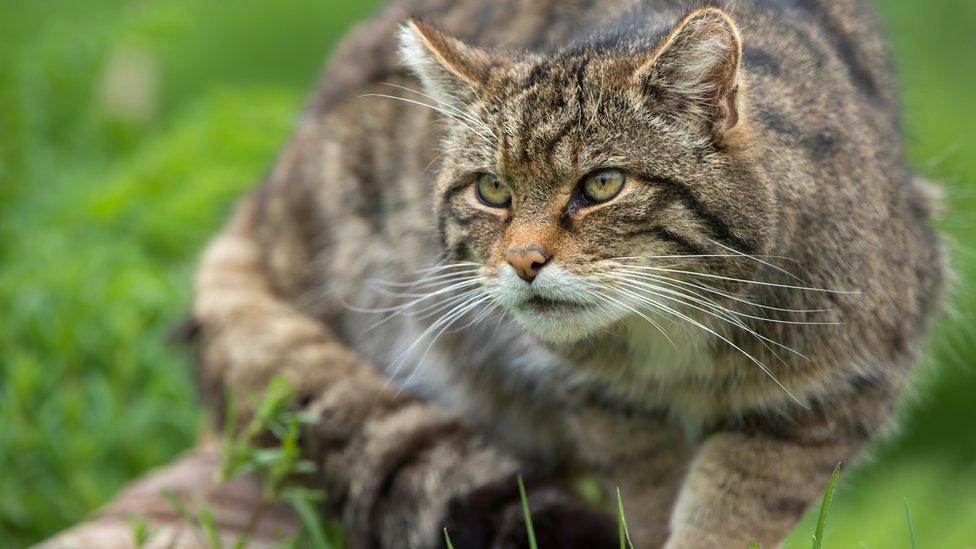State of Nature 2019: Report shows wildlife in Britain facing extinction
- Published
- comments

A big report into wildlife has found that more than a quarter of mammals in Britain are facing extinction.
The picture isn't much better across all wildlife species - including animals such as birds, insects and fish - with one in seven under threat.
Farming and climate change are key factors to blame in the State of Nature report that studied 7,000 species and involved 70 organisations.
A separate report for Scotland shows the population and habitat areas for many species in the country have also declined.
Here's what you think about the findings
State of Nature 2019: You react to the latest report
Butterfly species like the grayling have gone down since 1970
What species are under threat?
The report says almost half (40%) of species in the UK, including animals, birds and butterflies, have declined since 1970.
For example, the numbers of high brown fritillary and grayling butterflies have dropped by more than three quarters.
The greater mouse-eared bat is almost extinct in Britain
The average amount of mammals has also fallen by around a quarter (26%) - the wild cat and greater mouse-eared bat are almost extinct.
The report also highlights that 133 species have completely disappeared from Britain's shores since 1500.
Why are so many species under threat?
Modern-day farming and climate change are big causes of the decline in wildlife in Britain.
Areas where wildlife live and hunt for food have been destroyed to make way for farming and housing.
Pollution has caused huge problems for populations of wild animals, birds, insects and fish.
Extreme weather, rising temperatures and wildfires caused by climate change have all added to the problem.
Intensive farming and climate change have contributed to wildlife decline
What you can do to help
We need nature as much as it needs us so it's important that we do our best to conserve wildlife as much as we can.
You can help wildlife species across the UK by inviting it into your garden.
By planting a tree you can remove one tonne of carbon from the air over 40 years
Why not help hedgehogs by building them a home?
You can also plant wild flowers and grow a hedge to create habitats for wildlife to explore and live in.
Or why not try inviting new species into your garden by building an insect or bee hotel?
How to make a bee hotel - a step by step guide.
Spread the word
Remember to tell your friends and school about what's going on.
This will encourage others to think more about the wildlife around them and help make a difference.
Let us know what you think
Does more need to be done to help save British wildlife? Do you help wild creatures and plants? Let us know in the comments below.
- Published14 August 2019
- Published21 May 2019
- Published14 May 2019
